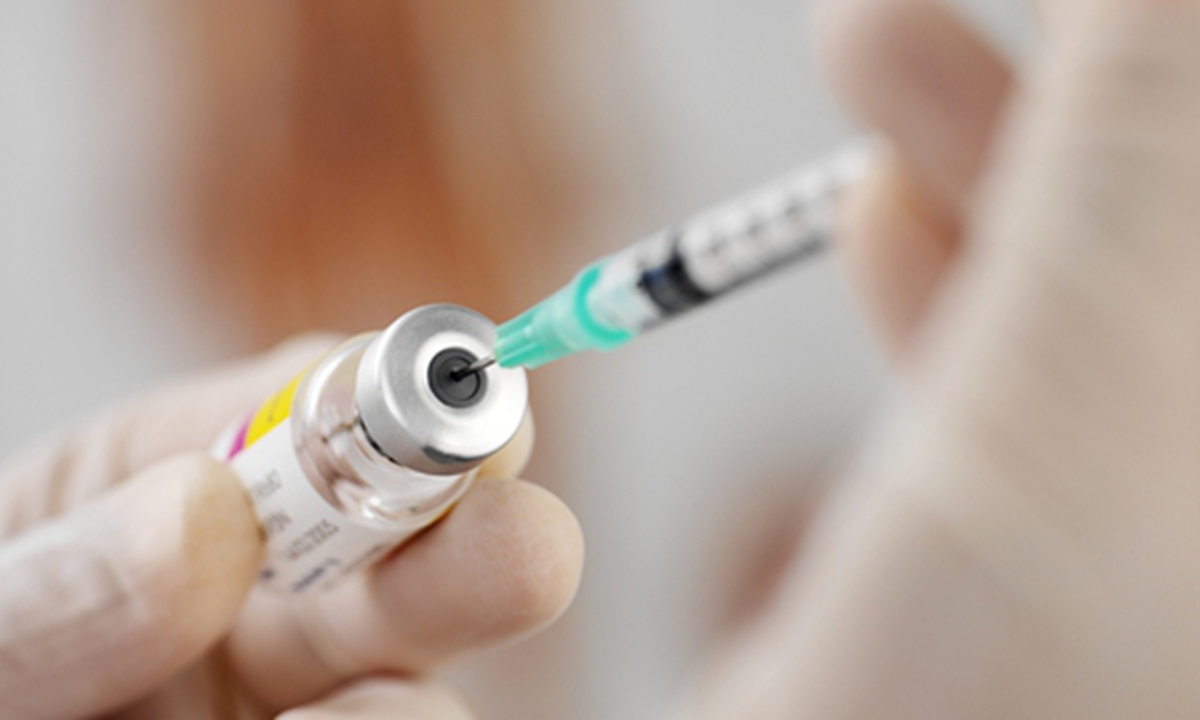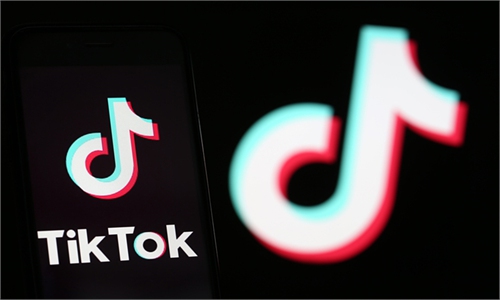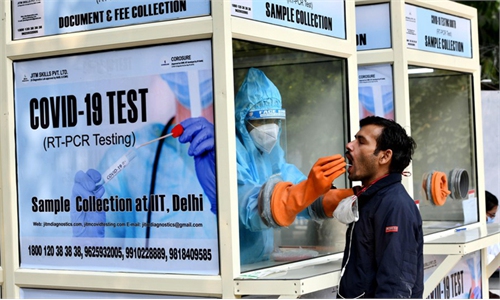
Photo: VCG
While some Indians pin high hopes of ending the country's public health crisis on the COVID-19 vaccine, it may not necessarily be a shot in the arm for India's economy.
The Indian drug regulator on Sunday officially approved emergency-use authorization for the Oxford University-AstraZeneca's Covishield and Bharat Biotech's Covaxin. While the decision was hailed by some in India as a game changer, industry experts and opposition lawmakers were quick to express their concerns over the "rushed approval" of a locally-produced coronavirus vaccine.
Given the fact that Bharat Biotech hasn't published the data for Covaxin, worries over its safety and efficacy have emerged after the official granting of approval. The decision making also represents an alarming lack of transparency as many questioned how the vaccine could be approved without even completing trials.
All these doubts and concerns surrounding the vaccine approval, to a certain extent, reflect that despite global optimism surrounding the future of the country's economic recovery, the nation remains held-back by uncertainty.
While the Indian economy took a hard hit from the pandemic and was even gripped by a technical recession, a number of predictions about its economic outlook seem quite optimistic. A recent article in the bulletin of the Reserve Bank of India said that after slumping by 23.9 percent and 7.5 percent in the first and second quarter of the current financial year, "real GDP growth is expected to break out into positive territory in Q3 - albeit, to a slender 0.1 percent."
If anything, Japanese brokerage Nomura was even more bullish in its forecast claiming that India could be the fastest-growing Asian economy in 2021, growing at 9.9 percent, despite a 7.1 percent fall in 2020.
Under such circumstances, the emergency approval of vaccines, though facing some skepticism, will undoubtedly see the optimistic sentiment about India's economy stay longer.
Yet, uncertainties remain for the Indian economy even with an effective vaccine. The supply of vaccines could be challenging just considering that India has the world's second highest number of COVID-19 cases, with more than 10 million infections recorded. Also, vaccines cannot reverse all the economic damage caused by the pandemic forced lockdowns. It is hard to say whether the government still has the ability to offer a much-needed helping hand to businesses ensnared by bankruptcies and supply chain issues. Moreover, how its domestic farmers protest, which has already caused heavy economic losses and disruptions to normal economic activities, will develop remains unknown. According to the PHD Chamber of Commerce and Industry, the protest will lead to economic loss of over $9 billion in the December quarter, according to Indian media outlets.
In this sense, while we look forward to seeing India bring the epidemic under the control with the help of vaccines, it remains to be seen how much the vaccine will actually aid economic recovery.



